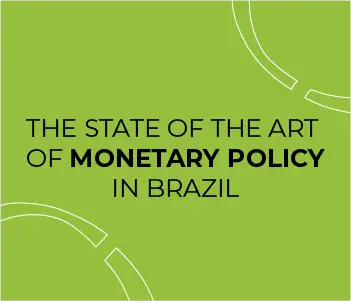The purpose of this report is to present and discuss the state of the art in the debate on monetary policy in Brazil. However, from a practical and methodological point of view, monetary policy is inserted in a broader context: since 1999, an economic policy regime called the “macroeconomic tripod” has been in force in Brazil, which consists of the simultaneous adoption of three policies: the primary surplus target regime (fiscal policy); the floating exchange rate regime (exchange policy); and the inflation targeting regime (monetary policy). Thus, the discussion of monetary policy should not be seen separately from other economic policies, as the full understanding of the role and limits of monetary policy requires the contribution of the entire macroeconomic regime in which it is inserted.
The report highlights the need to adopt a new monetary policy in Brazil. Monetary policy should not have as its sole objective the fight against inflation, just as the fight against inflation should not depend only on monetary policy. Controlling the inflationary process must never be neglected, especially when it directly affects the income of the working class and groups in economic and social vulnerability. An inflationary policy, however, must not rely solely on monetary policy as the only instrument. Finally, monetary policy should be oriented towards creating jobs, generating and distributing income, and guaranteeing rights.
The report is divided into four sections in addition to the introduction and final considerations. Section 2 discusses what the “macroeconomic tripod” is, focusing on theoretical aspects and the Brazilian macroeconomic model. Section 3 discusses alternative macroeconomic views and criticisms of the “macroeconomic tripod”, focusing on three views: new developmentalism, social developmentalism, and functional finance. Section 4 discusses the history of monetary policy from 1999 to the present day. Finally, section 5 analyzes some current debates on Brazilian monetary policy.


